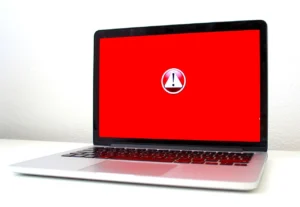Many practices unknowingly miss out on legitimate charges, misapply modifiers, or submit incomplete documentation, leading to underpayments and lost revenue. A professional review of these processes can uncover significant financial opportunities.
Medical Billers and Coders (MBC), a leading Neurology Billing Company, works closely with providers to close revenue gaps and improve billing performance.
Why Neurology Billing Services Require Precision?
Neurology is one of the most documentation-sensitive specialties in the healthcare industry. With a mix of diagnostic, procedural, and cognitive services, billing mistakes can easily occur in areas such as:
- Improper procedure bundling
- Missing time-based service documentation
- Under-billing of prolonged or complex E/M services
- Errors in modifier application (e.g., -25, -59)
- Uncaptured diagnostic interpretations
- ICD-10 code specificity requirements
Even in high-volume practices, these details can go unnoticed without routine audits or experienced billing support. That’s where a reliable Neurology Billing Service Provider like MBC adds significant value.
Common Areas Where Reimbursement Is Missed
1. Under-coding of Time-Based Services
Time spent managing complex neurological conditions is often underestimated or poorly documented, resulting in lower-level E/M billing.
MBC’s Support: MBC trains providers to document time accurately and codes for prolonged services using appropriate CPT add-ons like 99417 or 99358.
2. Incorrect Bundling of Diagnostic Procedures
Tests like nerve conduction studies and EMGs may be bundled unnecessarily, resulting in lost revenue. With proper coding and anatomical modifiers, separate payment is often allowed.
MBC’s Role: MBC reviews billing combinations and applies appropriate modifiers and units based on payer-specific guidance.
3. Modifier Misuse or Omission
Failing to include necessary modifiers or incorrectly using them can lead to partial payments or denials.
MBC’s Advantage: MBC’s neurology billing team applies modifiers such as -25, -59, -XS, and -76 by CMS and payer rules, improving claim acceptance rates.
4. Unbilled Interpretation of Diagnostic Tests
Interpretation of tests like EEGs or sleep studies is often performed but not separately billed, especially if global billing criteria aren’t met.
MBC’s Process: MBC reconciles clinical activities with charge entries to ensure all eligible diagnostic interpretations are billed correctly.
5. Lapses in Prior Authorization
High-cost treatments, such as infusion therapies or Botox injections for migraines, frequently require prior approval. Missed authorizations lead to denials.
MBC’s Solution: MBC manages the complete authorization cycle, tracks approvals, updates records, and ensures documentation is ready for claim submission.
6. Lack of ICD-10 Specificity
Generic diagnosis codes like “headache” or “dizziness” can lead to payer rejections. More detailed codes are often required to meet medical necessity standards.
MBC’s Guidance: MBC helps neurologists match clinical documentation to the most appropriate ICD-10 codes for each condition.
Signs Your Neurology Practice Is Missing Revenue:
- Consider a billing review if the following symptoms are present:
- Frequent denials without clear explanations
- Predominantly low-level E/M coding despite complex patients
- Incomplete billing for diagnostic studies or interpretations
- Delayed or inconsistent claim submissions
- No routine denial trend reporting or billing audits
These signs indicate internal gaps that a specialized Neurology Billing Company like MBC can help resolve.
How MBC Improves Revenue for Neurology Practices?
As a dedicated Neurology Billing Service Provider, Medical Billers and Coders (MBC) offers:
- Coders trained in neurology-specific CPT and ICD-10 coding
- Regular claim audits to recover missed charges
- Modifier accuracy checks to prevent bundling issues
- Support for time-based and prolonged service documentation
- Real-time denial management and reporting
- Dedicated prior authorization specialists
- Transparent reporting on revenue performance
MBC works with solo neurologists, multi-provider groups, and outpatient clinics to strengthen their financial operations while keeping providers focused on clinical care.
What Practices Can Expect?
Partnering with MBC for Neurology Billing Services can result in:
Shorter reimbursement cycles and lower A/R balances
Reduced denials and rework
More accurate billing for high-complexity services
Improved revenue capture for diagnostic and therapeutic procedures
Consistent compliance with payer guidelines
Conclusion:
Billing accuracy is critical to financial success in a high-complexity specialty like neurology. Without consistent review and expert oversight, revenue leakage is inevitable. Partnering with an experienced Neurology Billing Service Provider like MBC gives practices the tools, visibility, and support needed to recover missed revenue and stabilize long-term income.
Contact MBC today for neurology billing discovery opportunities to increase reimbursement.
Ref:
Common Billing Mistakes in Neurology- AAPC: https://www.aapc.com/blog/88583-common-neurology-coding-errors/
Neurology Billing Complexity and Revenue Leakage- American Academy of Neurology (AAN): https://www.aan.com/practice/financial-management/coding
Revenue Loss from Modifier Errors and Under-Coding – CMS: https://www.cms.gov/Outreach-and-Education/Medicare-Learning-Network-MLN
FAQs
1. How can under-coding time-based visits be prevented in neurology billing?
Answer: Undercoding often results from insufficient documentation of total visit time or missing prolonged service codes.
MBC trains providers on capturing total time accurately and applies the correct CPT add-on codes (e.g., 99417, 99358) to reflect the actual complexity of neurology visits.
2. Are EMG and nerve conduction studies always bundled for reimbursement?
Answer: Not always. Many payers allow separate reimbursement when distinct anatomic sites or clinical indications are documented.
MBC reviews documentation and applies appropriate modifiers (e.g., -59 or -XS) to support unbundling when guidelines permit.
3. Why are EEG claims frequently denied or underpaid?
Answer: Common reasons include incorrect global billing, lack of documented interpretation, or missing prior authorization.
As a specialized Neurology Billing Company, MBC audits EEG billing workflows ensures interpretation is billed separately when applicable, and manages pre-authorizations.
4. How can missed reimbursements for in-office procedures be identified?
Answer: Reimbursement can be missed when services are performed but not captured or documentation lacks clarity.
MBC reconciles EHR data with billing logs and performs monthly audits to detect unbilled procedures or missed CPT codes.
5. What documentation is required to support prolonged services in neurology?
Answer: Time must be documented beyond the threshold required for the level of E/M billed. Notes should justify extended evaluation or care planning.
MBC reviews chart notes and alerts providers when time thresholds are met, ensuring appropriate prolonged service codes are submitted.




